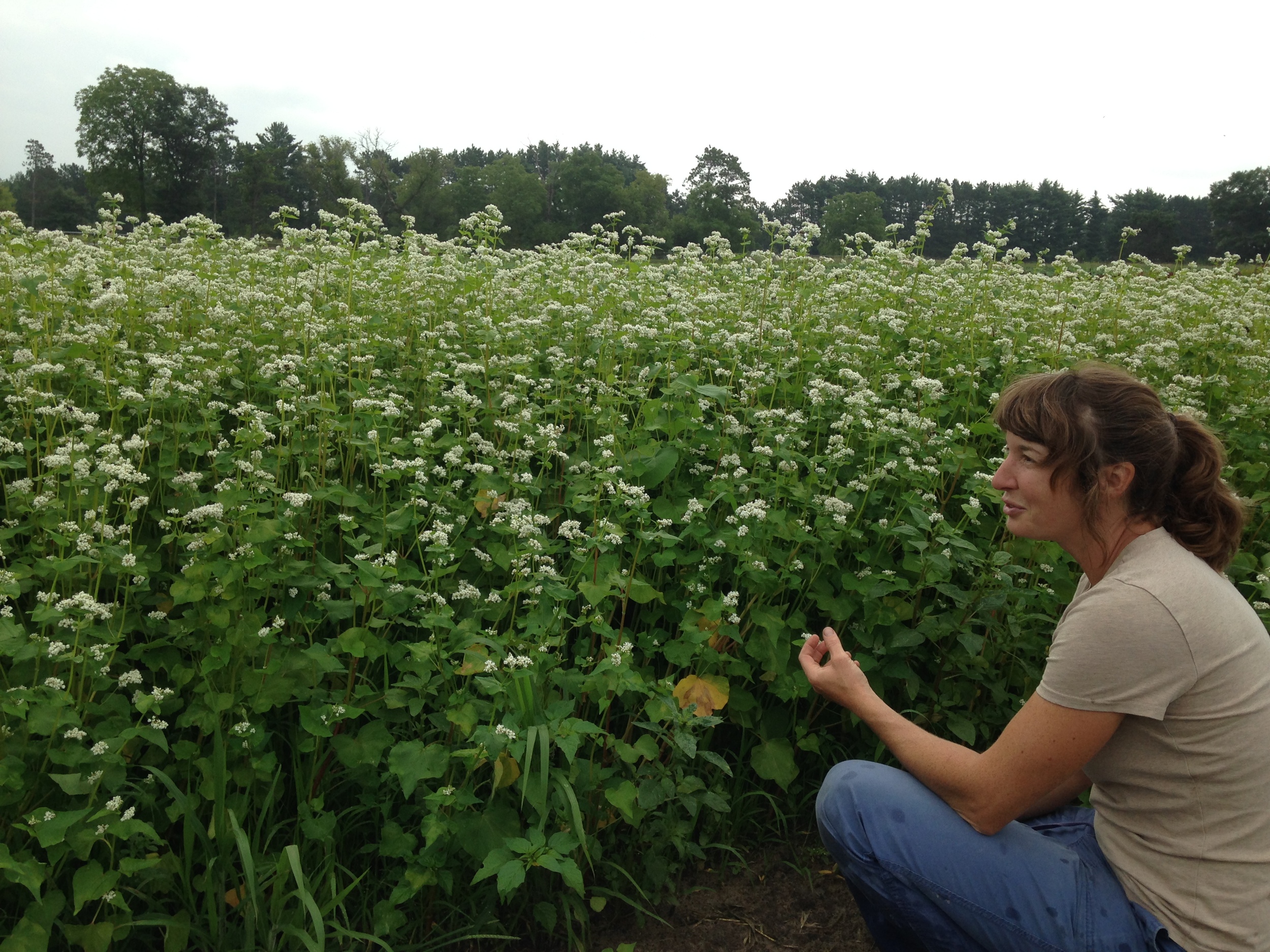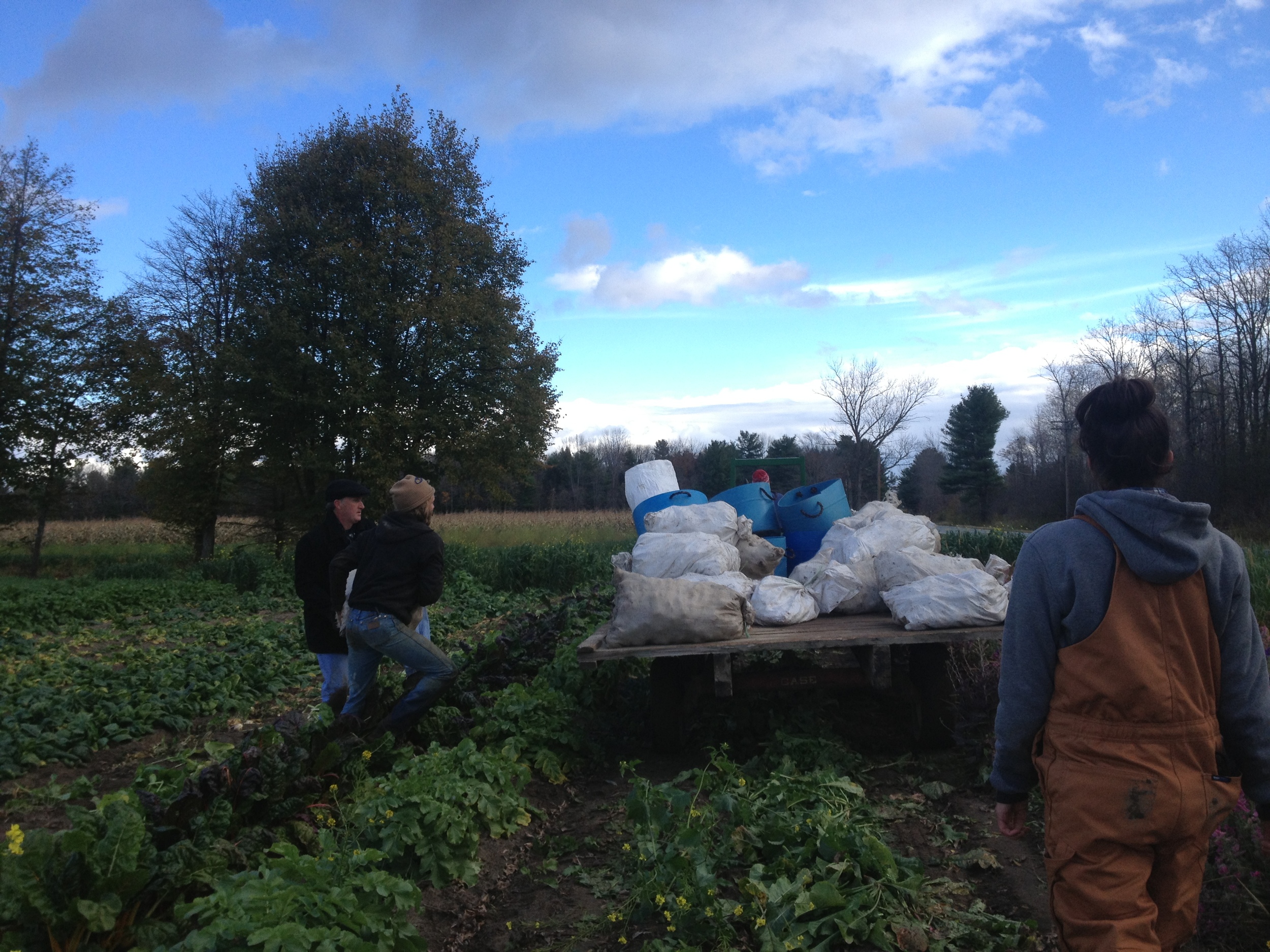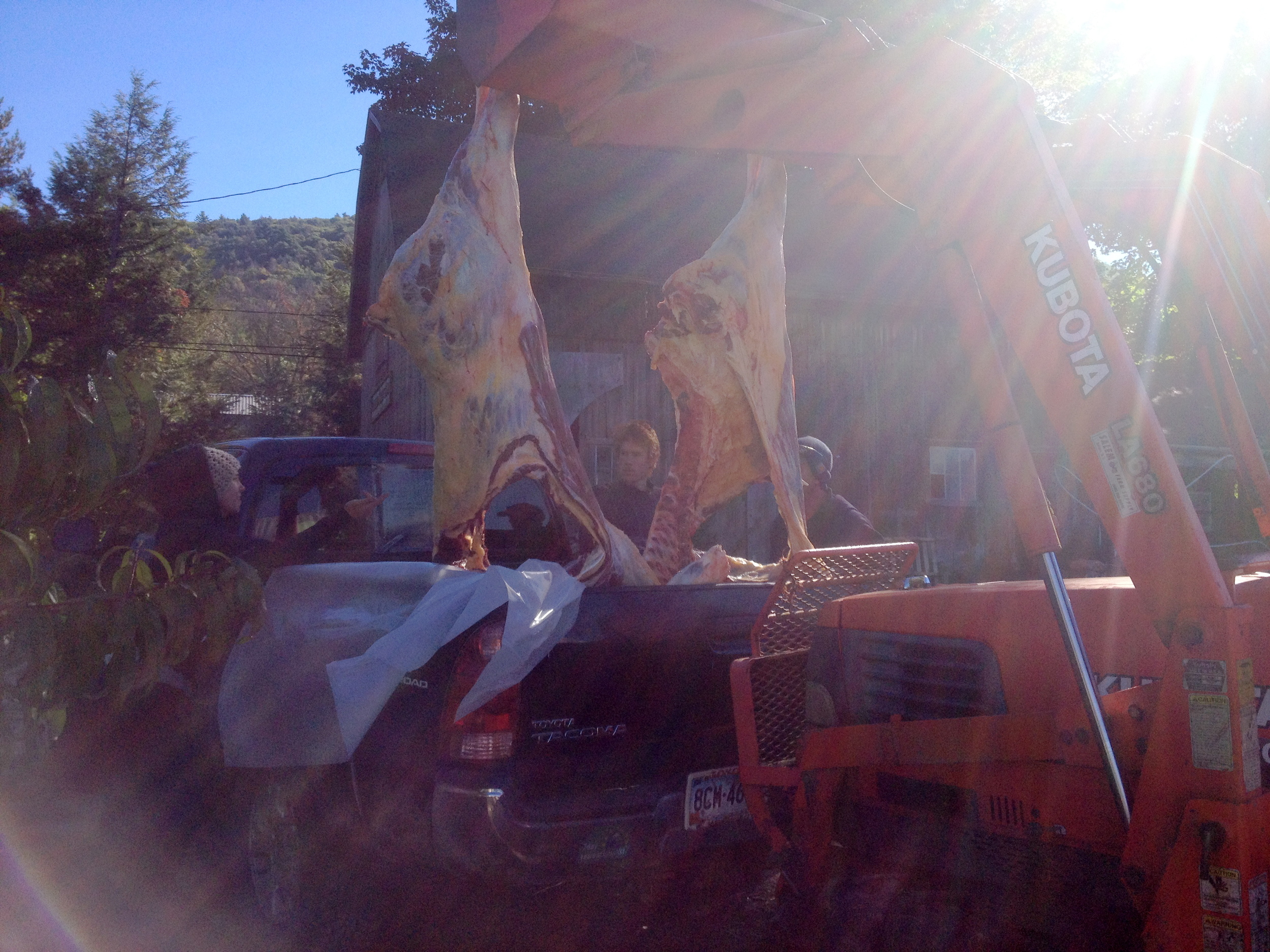So, Emily, what have you been up to these days?
Oh, you know, not much. Still working on Boerson Farm. Lots of weddings to go to this summer, and I worked at a few, too. Oh yeah, I’ve also been getting my farm ready.
Are you living there yet? What’s the status?
No, I’m still living in Princeton, but I’ll be moving down to Avoca full time at the end of October. This summer has been full of lots of bureaucracy, plus a bit of fieldwork. I’ve plowed most of the beds I’ll be planting in the spring, and just this past weekend tilled and seeded some cover crop to “put them to bed” for the winter. In mid-October, I’ll plant my garlic (about 3500 cloves of 20 different varieties) and strawberries.
Where are you moving at the end of October, exactly? Like, do you have a house?
I’ll be living in a 100-year-old brick farmhouse on a hill. It was a weekend home until my aunt and uncle decided to build their own house on another part of the property. They live there full time now, but it’s either a 3 minute drive around the block or a 15 minute hike over the hill and through the woods. The farmhouse is furnished and everything, and there are a bunch of outbuildings from when the farm was a small dairy many decades ago.
So what else will you grow besides garlic and strawberries?
I’ll be growing organic vegetables on about one acre using a bio-intensive raised bed system, meaning my plants will be spaced close together to shade out weeds and maximize yield from a small area. My goal is to have at least two kinds of greens available every week of the year (spinach, arugula, lettuce, salad mix, braising mix, kale, etc.), plus all your vegetable staples like carrots, onions, potatoes, tomatoes, etc. I also plan on establishing some perennial beds of rhubarb and asparagus, a small orchard (about 75 trees), and shiitake and oyster mushrooms. I plan on using a large unheated hoop house (30’ x 96’) and an assortment of low tunnels for both winter growing and earlier summer crops.
And where exactly do you plan on selling all this stuff?
Good question! I plan on starting with a 25-member CSA and two small farmers markets every week. The CSA will be fully customizable - members will still join the CSA by pre-paying at the beginning of the season, but instead of getting a box of whatever I want to give them that week, they’ll get to choose what they get and how much. I’ll send an email out, say on Tuesday evening, they’ll have until Wednesday evening to make an order, and then on Friday afternoon they can pick up a custom box whose value will be debited from their member balance. They’ll get special perks for becoming a member, like a 10% bonus at the beginning of the season, first dibs on special and early crops, discounts on bulk veggies for canning or storage, the ability to use their member credit at the farmers market, and an invite to a super sweet event on the farm every fall.
What about animals? Weren’t you talking about breeding stock and a cow, or something?
Ah, yes, the menagerie. I’ll be setting up shop with 2 (hopefully 3) sows and a boar, which will result in spring piglets. I’ve been gifted a jersey heifer calf for eventual milk (not anytime soon) and I plan on ordering some chicks this fall so they will start laying eggs about the time the first markets roll around in the spring. I’ll also round things out with a few mousers from the local shelter and a puppy!
A puppy? Are you crazy? Don’t you have enough to be getting on with?
Yes, I do, but the puppy is actually part of the plan! It was just born this past weekend - a Maremma, which is an Italian livestock guardian dog. It’s basically the Tuscan version of a Pyranees - big, white, & fluffy. Maremmas are bred and trained to stick with the herd (whatever the herd is - sheep, goats, pigs, chickens) and scare away predators. This pup will live in the barn with the menagerie, at first in a protected pen to get socialized, and eventually among the animals. It’s a working dog, pulling its weight on the farm just like everyone else.
And so you’ll be selling pork and eggs?
Yes, I’ll be selling eggs through the CSA and at the market. The pork is a slightly more complicated matter. At first I’ll be selling the weaned piglets to other farmers in the area and running a small pork CSA. The plan is to find 12 members who would like to split a pig every month. They would get the experience of eating a whole hog over the course of the year without having to invest in another freezer or make a large purchase all at once. There will be a deposit to join in the first month, then a monthly payment when the meat arrives. The price will be a savings compared to retail on local pastured-raised heritage pork, but will come with the convenience of parceled out monthly deliveries. Every box would include some basics (various ground and cased sausages, bacon, ham, pork chops) and a rotating 1/12th (various roasts, ribs, extra chops, extra bacon, etc.).
So, um, aren’t you broke? How are you going to survive all winter? And this all sounds expensive…
Why, yes! Thanks for asking. Well, I’ll be getting some kind of winter job when I get to Avoca. There are plenty of options in that department, so I’ll be able to pay the bills this winter. And yes, the start-up will cost some money. I’ve applied for an FSA micro-loan to cover some of the equipment I’ll need, and the USDA has a grant program to assist with the purchase of a hoop house, so I hope to take advantage of that as well. Should one or both of these fall through, there are other loan options available. I’ve also worked a bit of over-capitalization into my plan, so if I need to I can modify my plans in more of a “bootstrap” direction.
So, when can I visit?? Do you have a guest room?!
Yes! Please come visit! I have lots of room, and love to cook for company. If you get in touch with me, I’ll add you to the list for my private B&B situation - this basically involves signing up on a google calendar for one of my guest rooms, and pitching in on a project when you get here or tossing a few bucks in in the till should you prefer a more relaxing stay.
Are there other ways I can help without actually having to come to Wisconsin??
Well, first off, you should want to come to Wisconsin! But if you just can’t make the trip just yet, there are a few ways you can help:
- Contribute to the perennial fund, which will be used for the purchase and maintenance of trees, small fruits and herbs.
- Buy a CSA share for the local food bank. You’re too far away to enjoy my veggies, but you have a few bucks to spare and think more people should have access to local organic vegetables? You can buy a share that I’ll deliver to our local food bank all season. (This option available in March.)
- Buy one of the books on my Amazon wishlist. I'll slowly start adding more non-book items over the winter. Think of this as my farm registry, with my sincere promise that if I ever get married I will never register for anything again!
- Or, if you’re as broke as I am (hi there!), I would love it if you would share the link to my website with other people who might find it interesting.
You know, I have to say that this is an odd way to use that anthropology degree from Harvard.
Yeah, not the first or last time I’ll be hearing that.
Will you at least be posting more often now?
Yes, I plan on it. Since I won’t be working on two farms and driving at least two hours away most weekends, I should have more time for things like writing.
You know, it was really great to catch up this way! We should do this more often.
For sure! And next time I’ll try not to just go on about myself so much.
Fat chance!!
Haha!!
Byeeee!!
Laterrrr


































